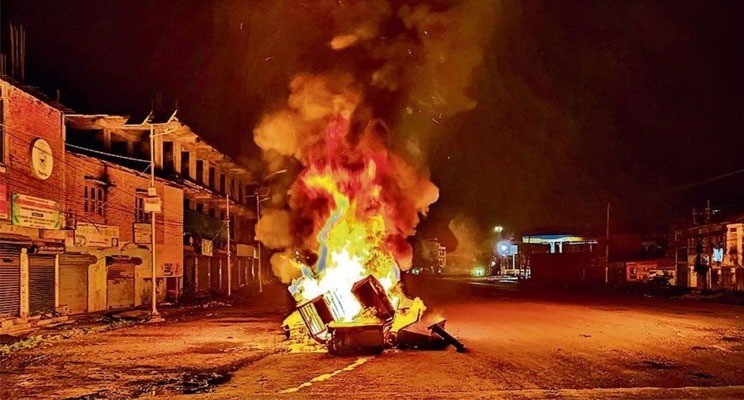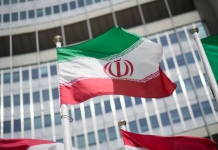DM Monitoring
New Delhi: In a no-holds-barred interview to The Wire, Bimol Akoijam, the newly elected Congress MP from Inner Manipur, laid the blame for the ongoing violence in the state squarely at the feet of Prime Minister Narendra Modi, home minister Amit Shah and the BJP.
Akoijam, known for his accurate academic analysis and public intellectualism, did not mince words as he dissected the complex dynamics fuelling the unrest that has ravaged the northeastern state for over 500 days. “This violence is a product of polarisation in society orchestrated by the BJP and the government of India led by the party, and [of their] dubiously projecting themselves as the saviour of the Meiteis while stoking the same sentiment among the Kukis,” he said. According to Akoijam, the violence is part of a larger, insidious plot to manipulate ethnic tensions for political gain.
“My assessment is that the BJP promised the Kuki armed groups a separate administration or state in exchange for their support during the elections. This is an attempt to destroy the idea of Manipur, to counter the historically rooted political issues represented by Manipur’s political armed groups. In effect, what we’re seeing now is an attempt to neutralise these groups, which have consistently refused to engage in talks with the government.” Akoijam suggested an even deeper geopolitical strategy behind the violence – one that extends beyond internal state politics. “I have sensed from day one that the crisis has a geo-strategic dimension. The Kuki armed groups are being used as a sphere of influence by the Indian state in Bangladesh and Myanmar, areas already under Chinese influence. If India can establish a buffer zone near the Bay of Bengal, it will allow the country to assert control over the region.
“These Kuki groups, as many authors have pointed out, have long been propped up by the Indian state to counter the Naga armed groups and later the Meitei groups. This fits perfectly into the broader geopolitical strategy that I have understood all along.” Akoijam even drew a parallel to Partition.“Do you think they’re aiming to create a separate country?” The Wire asked.
“Elements pushing for that exist, but the contestation over Manipur’s future has been brewing for decades,” Akoijam replied.
“This is all part of a script. Just watch the news – the narrative never changes. Have you ever seen a Kuki MLA speak about peace? I haven’t. But instead of appealing for peace and calm, these politicians started demanding a separate administration just a couple of days after the violence erupted on May 3 [2023]. It is quite like the Direct Action Day of the Muslim League that inaugurated the Partition violence in 1946.”
Responsibility for political manipulation, Akoijam believes, goes all the way to the top. He pointed to a critical decision taken on May 31, 2023, when Kuldiep Singh, a security adviser to the Manipur government, was appointed chairman of the unified command overseeing both the army and the police forces in the state.
According to Akoijam, this manoeuvre was designed to strip Manipur’s chief minister, N. Biren Singh, of control while still putting him up as a facade to deflect blame for the crisis – a scapegoat to shield Modi and Shah from any criticism, particularly before the Lok Sabha election.
This move has been camouflaged by creating confusion regarding the reported invocation of Article 355, he said.
Article 355 deals with the Union government’s duty to protect the states from “external aggression and internal disturbance”.
“Amit Shah and Narendra Modi were behind this move. If Biren had held onto the unified command, his government would have been fully responsible for the crisis, and for the government of India to exercise the duty envisaged in Article 355 legitimately is to invoke Article 352 or 356,” he said, referring to constitutional provisions that allow the Union government to take control from the state.
Articles 352 and Article 356 of the constitution deal with emergency provisions and the Union government’s control over states.
Under Article 352, which deals with national emergencies, the president can declare an emergency during war, external aggression or armed rebellion, suspending citizens’ rights and granting the Union government more authority over states. It requires parliament’s approval within a month.
And Article 356 provides for president’s rule. The president can impose president’s rule if a state government fails to function according to the constitution. The state legislature is suspended or dissolved, and the Union government takes over, with extensions allowed for up to three years.
Akoijam added, “Biren Singh is part of the game plan – the plan that Modi and Shah have – because he himself appointed Kuldiep and gave power of the unified command to him so the blame won’t come to him, allowing him to save his chair.”



